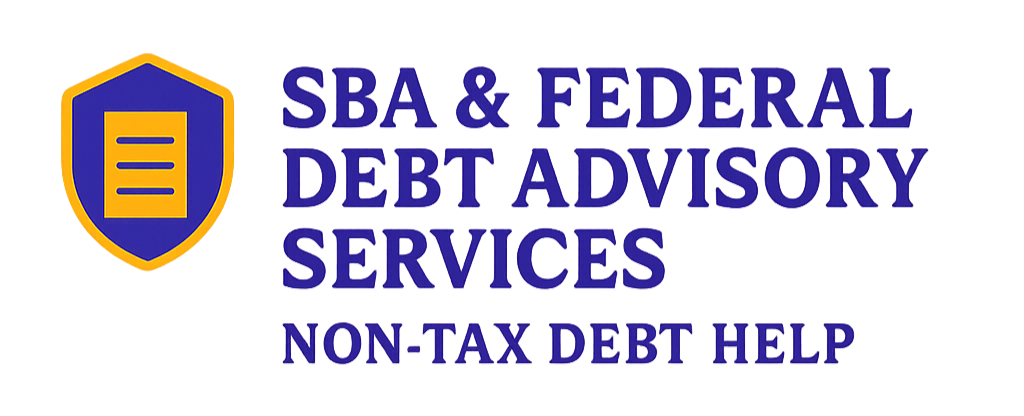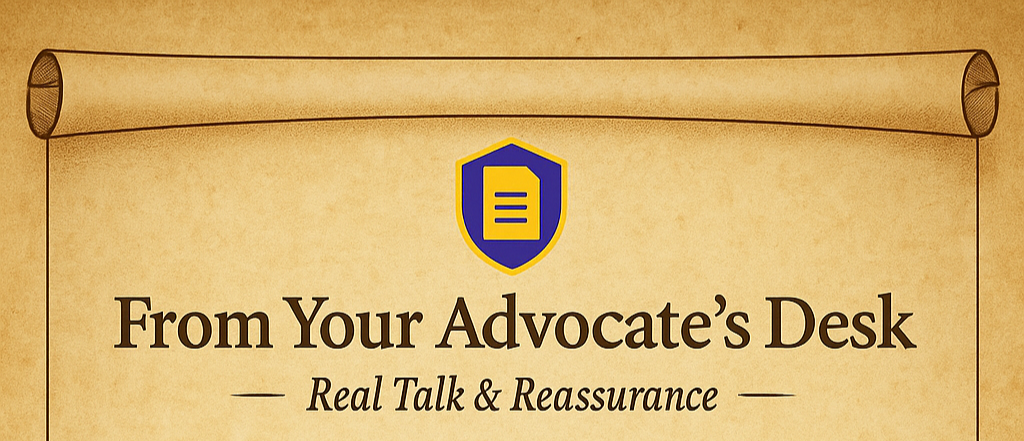
Let’s talk about that letter you just got.
If you just received a federal debt collection notice from the Bureau of the Fiscal Service (part of the U.S. Department of the Treasury), especially one warning of wage garnishment, take a deep breath. You’re not alone, and you still have time to act.
You have the right to request a hearing, and you typically have 15 business days from the mailing date to submit that request. If you miss this deadline, the Bureau of the Fiscal Service may begin garnishing your wages for up to 60 days while your hearing request is being reviewed.
Acting quickly gives you the best chance to pause the process and ensure your full circumstances are considered.
This notice is often related to a defaulted SBA loan or another non-tax federal debt that’s been referred to the Bureau of the Fiscal Service for collection.
And yes, the Bureau of the Fiscal Service can garnish up to 15% of your disposable income, even without a court order. But here’s what most people don’t realize:
• If you already have another garnishment (like child support), the total amount taken cannot exceed 25% of your disposable income.
• You have the right to file a hearing request for your non-tax federal debt, and in some cases, that may help prevent garnishment. Whether it applies in your situation depends on the timing and details of your case.
"You’re not failing, you’re navigating something you were never taught how to survive. And that takes strength."
Here’s something else that often gets missed:
Under federal law (31 U.S.C. § 3720D), your employer cannot fire you, refuse to employ you, or discipline you solely because your wages are being garnished for a federal loan in collections.
We explain everything in plain English in our article:
Can the U.S. Bureau of the Fiscal Service Really Garnish My Wages? Here’s What the Law Actually Allows
Feeling frozen or ashamed? You're not alone. We help people every day who are dealing with:
• Debts referred to the Bureau of the Fiscal Service for collection, including SBA loans, overpayments, and other agency-referred debts
• Confusing paperwork and short deadlines
• Fear of losing more of their paycheck
We offer a free 15-minute consultation to help you understand your options and take action.
You’re already doing something brave, getting informed.
Your Advocate
SBA & Federal Debt Advisory Services
Email: YourAdvocate@nontaxdebthelp.com
Disclaimer: This resource is for informational purposes only and is not legal advice. SBA & Federal Debt Advisory Services is not a law firm and does not provide legal representation. We support individuals navigating federal debt processes as advocates and consultants. If your situation requires legal advice, you may wish to consult an attorney. This resource was created by SBA & Federal Debt Advisory Services. Learn more at NonTaxDebtHelp.com or schedule your free 15-minute consultation at: SBA & Federal Debt Advisory Services


 DisclaimerDisclaimer
DisclaimerDisclaimerLooking for more support and straight answers?
Check out these helpful posts:
Can the U.S. Bureau of the Fiscal Service Really Garnish My Wages?
From Your Advocate’s Desk – Real Talk & Reassurance

Let’s talk about that letter you just got.
If you just received a federal debt collection notice from the Bureau of the Fiscal Service (part of the U.S. Department of the Treasury), especially one warning of wage garnishment, take a deep breath. You’re not alone, and you still have time to act.
You have the right to request a hearing, and you typically have 15 business days from the mailing date to submit that request. If you miss this deadline, the Bureau of the Fiscal Service may begin garnishing your wages for up to 60 days while your hearing request is being reviewed.
Acting quickly gives you the best chance to pause the process and ensure your full circumstances are considered.
This notice is often related to a defaulted SBA loan or another non-tax federal debt that’s been referred to the Bureau of the Fiscal Service for collection.
And yes, the Bureau of the Fiscal Service can garnish up to 15% of your disposable income, even without a court order. But here’s what most people don’t realize:
• If you already have another garnishment (like child support), the total amount taken cannot exceed 25% of your disposable income.
• You have the right to file a hearing request for your non-tax federal debt, and in some cases, that may help prevent garnishment. Whether it applies in your situation depends on the timing and details of your case.
"You’re not failing, you’re navigating something you were never taught how to survive. And that takes strength."
Here’s something else that often gets missed:
Under federal law (31 U.S.C. § 3720D), your employer cannot fire you, refuse to employ you, or discipline you solely because your wages are being garnished for a federal loan in collections.
We explain everything in plain English in our article:
Can the U.S. Bureau of the Fiscal Service Really Garnish My Wages? Here’s What the Law Actually Allows
Feeling frozen or ashamed? You're not alone. We help people every day who are dealing with:
• Debts referred to the Bureau of the Fiscal Service for collection, including SBA loans, overpayments, and other agency-referred debts
• Confusing paperwork and short deadlines
• Fear of losing more of their paycheck
We offer a free 15-minute consultation to help you understand your options and take action.
You’re already doing something brave, getting informed.
Your Advocate
SBA & Federal Debt Advisory Services
Email: YourAdvocate@nontaxdebthelp.com
Disclaimer: This resource is for informational purposes only and is not legal advice. SBA & Federal Debt Advisory Services is not a law firm and does not provide legal representation. We support individuals navigating federal debt processes as advocates and consultants. If your situation requires legal advice, you may wish to consult an attorney. This resource was created by SBA & Federal Debt Advisory Services.
